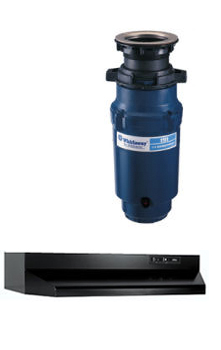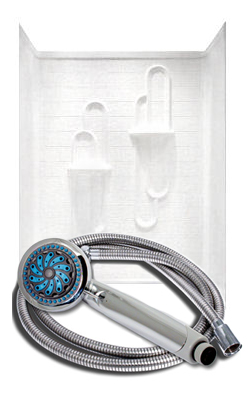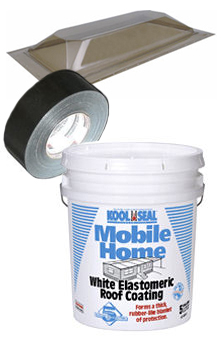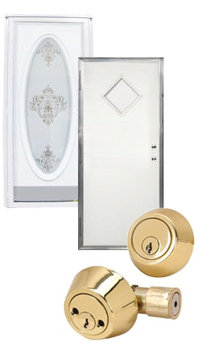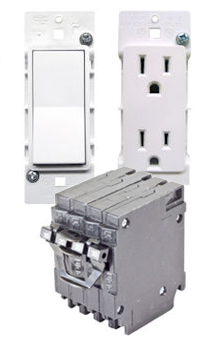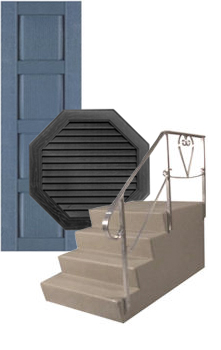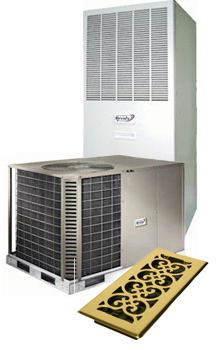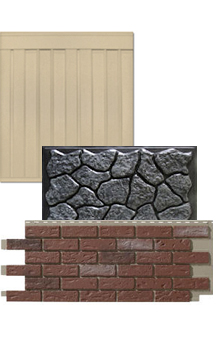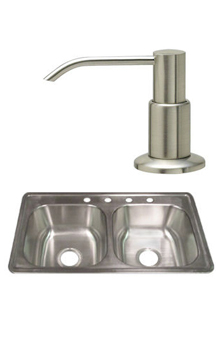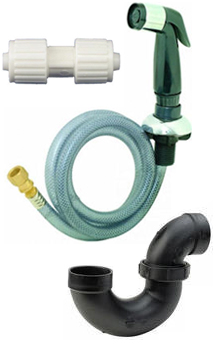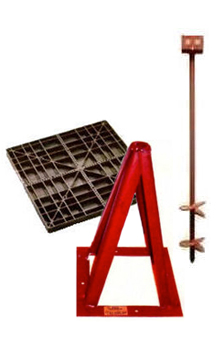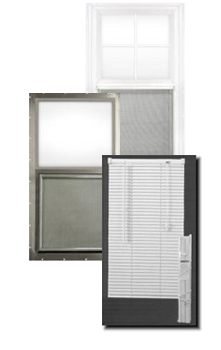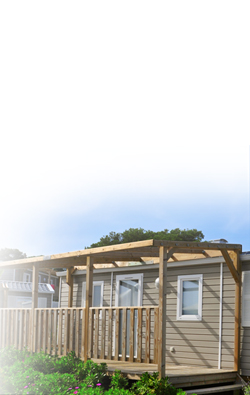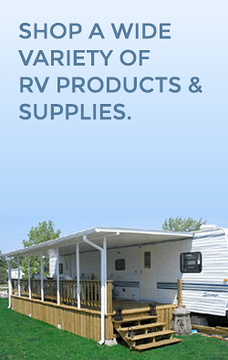 Summer is in full swing, and while the sunny days are great for barbecues and beach trips, they can turn your mobile home into an uncomfortable hotbox. You walk inside after a long day, expecting a refreshing blast of cool air, but instead, you’re hit with a wave of heat. The AC is running, but it feels like it’s just not enough. Sound familiar?
Summer is in full swing, and while the sunny days are great for barbecues and beach trips, they can turn your mobile home into an uncomfortable hotbox. You walk inside after a long day, expecting a refreshing blast of cool air, but instead, you’re hit with a wave of heat. The AC is running, but it feels like it’s just not enough. Sound familiar?
If your mobile home isn’t staying cool, it’s not just a minor inconvenience—it can make daily life downright miserable. But before you start thinking that you need to crank up the AC or retreat to the nearest air-conditioned space, take a step back. The problem might not be your air conditioner alone.
Here are seven reasons why your mobile home might be struggling to stay cool, and what you can do to turn it into a cool, comfortable oasis.
There’s a Problem With Your AC System
Your air conditioning system is the heart of your mobile home’s cooling. When it’s not working right, it’s no wonder your home isn’t staying cool. One of the most common issues is a dirty or clogged air filter, which restricts airflow and reduces the system’s efficiency. When the filter is blocked, your AC has to work harder to push cool air through, which can lead to overheating and inadequate cooling.
Another common problem is low refrigerant levels, which can occur due to leaks in the system. Refrigerant is essential for the AC to cool the air properly. Without enough refrigerant, the system can’t absorb heat effectively, leading to poor cooling performance.
A malfunctioning thermostat can also cause problems. If the thermostat isn’t reading the temperature correctly, it might not signal the AC to turn on when it should, or it might turn it off prematurely. Additionally, electrical issues, such as a failing compressor or faulty wiring, can prevent the AC from working efficiently or at all.
How to Fix It Your AC
Regularly changing the air filter can prevent many of these issues. Ensure the thermostat is working correctly, and consider upgrading to a programmable thermostat for better control. If you suspect refrigerant leaks or electrical problems, it’s best to call a professional HVAC technician to inspect and repair your system. Routine maintenance checks can catch these issues early and keep your AC running smoothly.
Your Home Lacks Insulation
Many older mobile homes were constructed with minimal insulation, particularly in the walls, roof, and underbelly. This lack of insulation means that heat can quickly enter your home in the summer, and the cool air from your AC can escape just as easily. Even if your AC is working perfectly, inadequate insulation can render it nearly ineffective.
Insulation problems can also arise from damage over time. Moisture infiltration, pests, and general wear and tear can degrade insulation, reducing its effectiveness. Without proper insulation, your home’s interior is much more susceptible to temperature fluctuations, making it challenging to maintain a cool environment.
How to Fix It
Adding or upgrading insulation in your mobile home can make a significant difference in how well it retains cool air. Insulate the walls, roof, and underbelly using materials appropriate for your climate. Reflective insulation or radiant barriers can also help keep heat out. While upgrading insulation can be an investment, it pays off in lower energy bills and improved comfort year-round.
Leaky Windows and Doors
Mobile homes, especially older ones, may have windows and doors that weren’t built with the same energy efficiency standards as modern homes. Over time, the seals around windows and doors can wear out, leading to gaps and cracks. These openings allow cool air to escape and warm air to enter, making it difficult for your AC to maintain a comfortable temperature.
How to Fix A Leaky Window or Door
Conduct a thorough inspection of all windows and doors, checking for visible cracks, gaps, or drafts. Weatherstripping and caulk are cost-effective solutions for sealing minor leaks. For larger or more persistent issues, consider replacing old or inefficient windows and doors with modern, energy-efficient models. This upgrade not only helps keep your home cool but also improves its overall energy efficiency, potentially reducing your utility bills.
Poor Airflow
Airflow problems in a mobile home can stem from several causes. One common issue is blocked or closed vents, which can prevent air from circulating correctly throughout the home. Furniture, curtains, or other obstructions placed too close to vents can restrict airflow and create uneven cooling.
How to Fix Poor Airflow
Start by ensuring all vents are open and unobstructed. Rearrange furniture or window treatments if necessary to improve air circulation. Ceiling fans can also help distribute cool air more evenly.
Ductwork Issues
The ductwork in your mobile home plays a crucial role in distributing cool air from your AC system to different rooms. However, ductwork can develop problems over time that affect its efficiency. Leaks are a common issue, where gaps or holes in the ducts allow cool air to escape before it reaches the intended rooms. This not only reduces the cooling efficiency but also makes your AC work harder, leading to increased energy use and wear on the system.
Poorly designed or installed ductwork can also cause airflow issues, leading to uneven cooling throughout your home. Blockages from dust, debris, or pests can further exacerbate the problem by restricting airflow and reducing the effectiveness of your cooling system.
How to Fix Ductwork Issues
Have a professional inspect your ductwork for leaks, blockages, or design flaws. Sealing leaks with duct tape or mastic can prevent air loss while cleaning the ducts can remove any obstructions. If your ductwork design is inefficient, a professional may recommend modifications to ensure even distribution of air throughout your home. Properly maintained and designed ductwork can significantly improve your home’s cooling efficiency.
Indoor Humidity Levels Are Too High
High indoor humidity can make your home feel warmer than it actually is, even if your AC is running. Humidity makes it harder for sweat to evaporate from your skin, which is your body’s natural way of cooling down. As a result, the air feels sticky and uncomfortable, and the temperature seems higher than it is.
Humidity issues can be caused by poor ventilation, water leaks, or an AC system that’s not effectively dehumidifying the air. Mobile homes in particularly humid climates might struggle more with this issue, as the high outdoor humidity can easily seep inside.
How to Fix It
To reduce indoor humidity, use a dehumidifier to pull excess moisture from the air. Ensure that your AC system is set to a mode that dehumidifies the air effectively. Regularly check for and repair any water leaks that could be adding moisture to your home’s interior. Improving ventilation by using exhaust fans in the kitchen and bathroom can also help reduce humidity levels, making your home feel cooler and more comfortable.
The Roof Absorbs Too Much Heat
The roof of your mobile home is exposed to the sun all day long, and if it’s made of a material that absorbs a lot of heat, like dark shingles or metal, it can turn your home into a heat trap. The absorbed heat radiates into the interior, making it harder for your AC to cool the space effectively.
Roofs that lack reflective coatings or insulation allow more heat to enter the home, increasing indoor temperatures. This issue is prevalent in mobile homes with older roofs or those in hot climates where the sun’s rays are incredibly intense.
How to Fix It
Consider applying a reflective coating to your roof to help reflect the sun’s rays and reduce heat absorption. Installing a cool roof, which is specifically designed to reflect more sunlight and absorb less heat, can also help. Additionally, adding insulation to your roof can prevent heat from transferring into your home, making it easier to keep cool. These upgrades can significantly reduce the temperature inside your mobile home, leading to a more comfortable living environment and lower energy bills.
Turn Down the Heat!
Don’t let the summer heat get the best of you! By addressing these seven common issues, you can transform your mobile home into a cool, comfortable retreat, no matter how high the temperatures climb outside. Whether it’s upgrading your insulation, sealing drafty windows, or investing in a new AC unit, each step you take will help you stay cool, save money, and enjoy your home to the fullest.
So, if your mobile home isn’t staying cool, don’t sweat it—take action today! Visit the Mobile Home Parts Store for top-quality products and solutions to enhance your home’s comfort. With the right upgrades, you’ll be chilling out in no time!
Tags: ac, heating and cooling, heating ducts, Kinro windows, Roof Coating, sealing heating ducts


